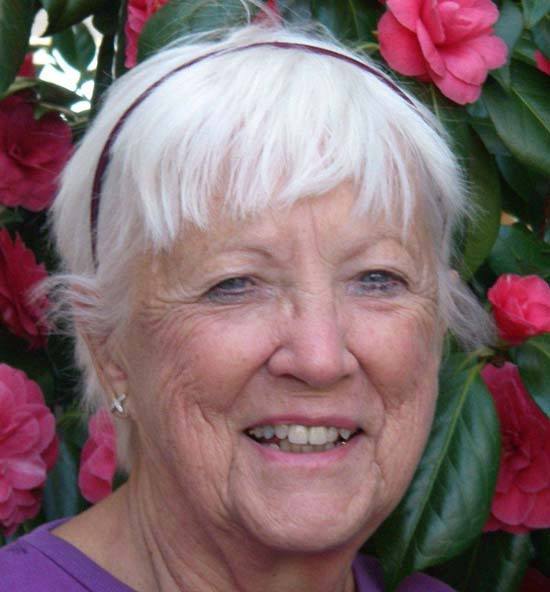By Rita Larom
“I joined the Marine Corps,” said Lopez Islander, Margie Wissert Roe. “But it was at the end of World War II. I had to be 20 to join and that was in 1945.”
Roe remembers being at a church youth meeting when it was announced that Pearl Harbor was bombed.
“We were horrified. We had tried to stay out of the war, but I guess they would have got us if we had,” she said as her voice softened.
Roe grew up in New Jersey. Her parents divorced when she was three. She lived with her grandparents until she started high school.
“My mother liked the WAVE uniforms and couldn’t understand my choice of service,” Roe said. “I saw a lot of war movies and wanted to be included with the heroic Marines. I was in boot camp when Germany surrendered.”
Roe’s command of high school shorthand gained her a position as a court reporter for Court Marshals.
“They didn’t have machines for court reporters then,” she said with her frequent hearty laugh. On days when they weren’t too busy, she admits to making a peanut butter and bacon sandwich and slipping away for a swim at lunch time.
“That felt very good in South Carolina,” she said.
Discharged after 13 months, she received a request to continue as secretary for the base’s Commanding General.
“So that’s what I did,” Roe said. She had a secret service clearance and held the secretarial position on different bases for the next eight years.
A mutual friend introduced Roe to her future husband, Pat.
“He was teaching intelligence in officer’s training school,” she said. “We were married in 1954 and had three children. He retired at 37 as a Major after 20 years of service.”
“My husband had fond memories of youthful visits to his uncle’s place on Orcas so we looked for retirement property there. We stopped at Lopez on our return, looked at some land that was listed but didn’t buy, and had lunch at The Islander,” Roe said.
“My husband came here alone in 1965 when he retired,” Roe continued. “He found 35 acres with a house that I didn’t see until we moved that same year.”
As Roe followed a truck with their furniture on a dusty road into their new home, she got her first clue that life on Lopez would be very different from living with the Marine’s white glove inspections.
“There were only 500 full time residents when we arrived and hardly anyone was under 40,” Roe said. “We lived on the farm until 1990 and raised sheep and horses.”
There was no kindergarten on the island so she and Joyce Fralic with children the same age started a daycare center at the Community Church.
“It was the beginnings of the Children’s Center that we have today,” Roe said.
“My husband was selling real estate when our youngest child started school in 1966,” Roe said. “Three people left the office where he worked and he asked if I would be interested in selling. I said I would try it.”
Eventually we owned the office,” Roe said, “first as a branch of Washington House and then we became Island House Realtors and owned the building that now houses Isabel’s Espresso. After 25 years, we sold the business to David Schwartz. He had it for 15 years and sold it in 1990 to a buyer who kept the sales staff. That’s how I got to Windermere. I still work there part time.”
When Roe began volunteering for the library, it was in the basement of Jean Bouchey’s house and had an assortment of books collected since World War II.
“I was involved in getting permission from the Fire Department to use an empty bay in the Fire Hall for a library” Roe explained. “We did lots of fund raisers and asked those who could afford it for lump sum donations. It took money to operate. Experience helped us become better organized. Sandra Schugren walked in one day and told me she was a ‘Real Librarian’ and wanted to help — we were all so pleased.
We operated in this manner for several years until the Fire Department wanted to put up a new building.” Community members decided library funding should be on the tax roll. “That was another hurdle,” Roe said. “The legislature had to pass a law to make it legal.”
The Fire Department gave the old building to the library. There was land available across the street so the building — and the library — were moved to the present location.
“I was on the Thrift Shop board for six years and scheduled volunteers,” Roe said. “I’m not running around volunteering any more. I figure it’s someone else’s turn. It’s good for people to get out and volunteer —and it’s a wonderful way to get acquainted.”



